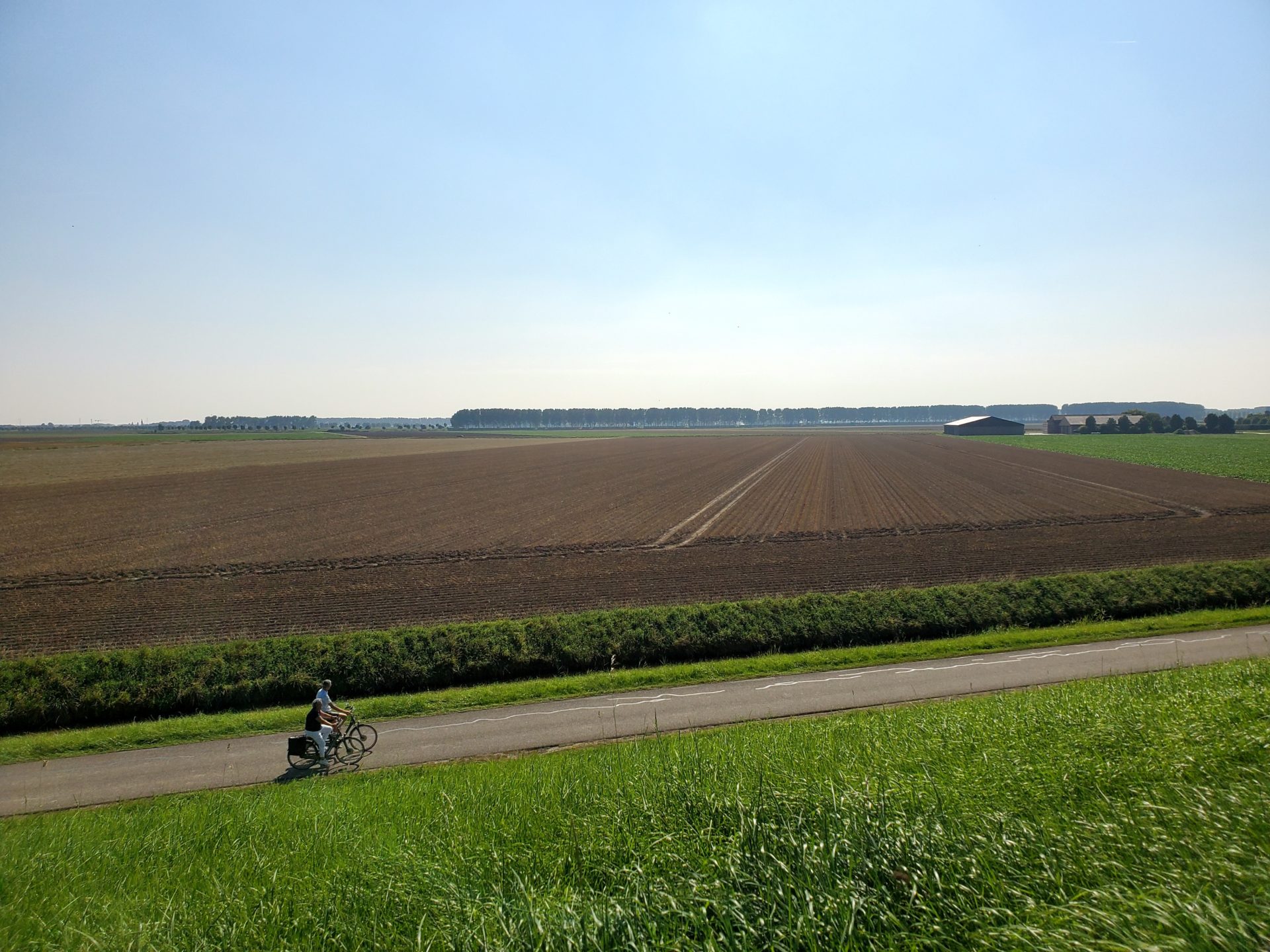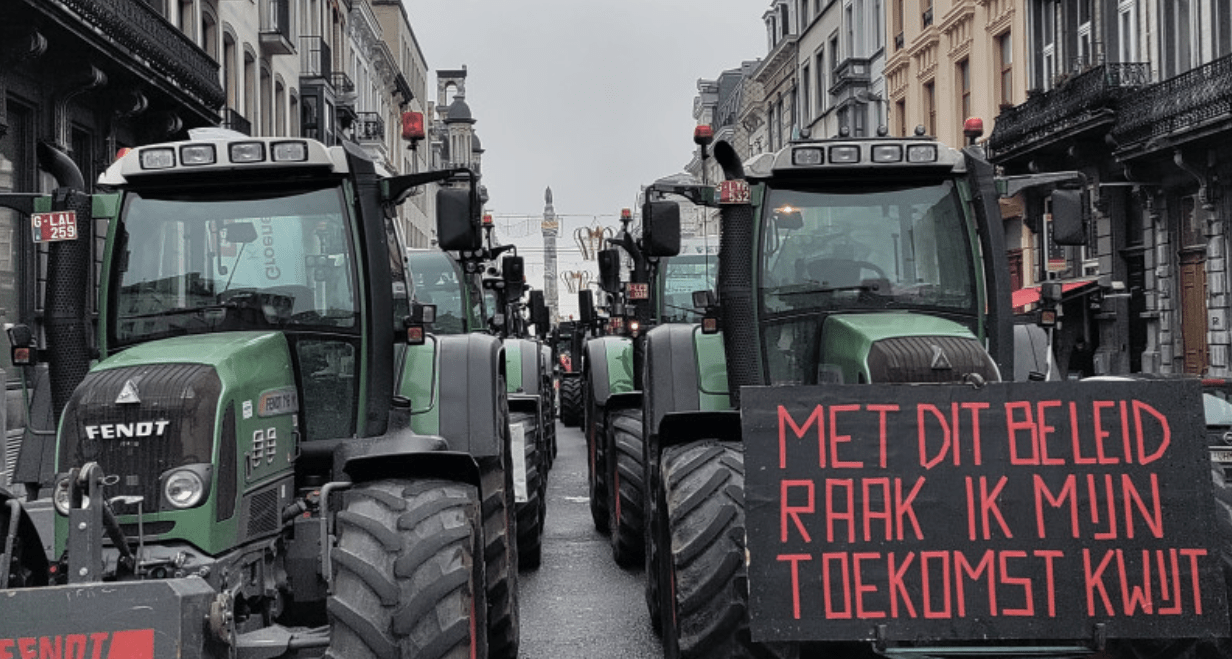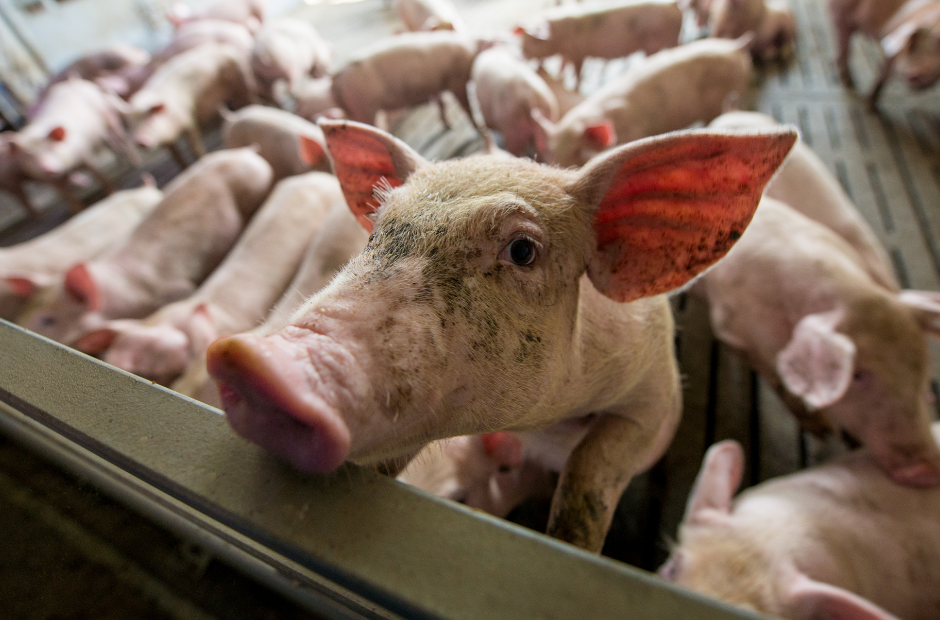An 8% reduction in the use of cereals for animal feed in the EU would save enough wheat to make up for the expected deficit in Ukraine as a result of Russia’s invasion, according to new calculations by Greenpeace.
Both Russia and Ukraine are major suppliers of cereals for the EU, and the war has resulted in price hikes in grocery stores along with shortages– current and anticipated– of some staples.
Ukraine produces on average 26 million tonnes of wheat per year, which is estimated to be reduced by between 20% and 30% due to the war. A more extreme scenario of a 50% reduction in Ukrainian wheat production would mean a global deficit of 13 million tonnes.
Related News
- Industrial bakeries fear short-term price explosion of bread
- Price of chicken and pork in grocery stores rising sharply
Belgian farmers are struggling as a result to obtain animal feed imports, and suppliers of synthetic fertilisers are also grappling with disruptions in supply chains.
Greenpeace is calling on the EU to reduce the factory farming of animals in order to free up enough cereals to make up for the wheat shortfall, and cut the EU’s reliance on increasingly expensive and polluting synthetic fertilisers.
Financial aid for farmers
The European Commission is expected to announce €500 million in financial aid on Wednesday to farmers facing disruption due to the war, including specific assistance for the pork sector, which was already struggling.
But Greenpeace says the Commission, backed by several governments, has also indicated a willingness to loosen environmental protections in the EU’s common agricultural policy and delay the implementation of key elements of the Green Deal and the Farm to Fork Strategy.
“The industrial agriculture lobby asking taxpayers to pay the bill for more feed and fertiliser and looser environmental protection is like someone digging themself into a hole and demanding that we buy them a bigger shovel,” said Greenpeace EU agriculture policy director Marco Contiero.

A farm in Flanders. Photo by Helen Lyons/The Brussels Times
“Factory farming’s hunger for animal feed, and the synthetic fertilisers used to grow it, make it very vulnerable to disruption, and the solution is helping farmers reduce the number of animals instead of bankrolling this unsustainable production.”
Contiero says producing less meat and dairy, and increasing ecological production, would make European farming more resilient to shocks, but that “instead, the EU risks doubling down on a broken model.”
Changes to animal feed could free up wheat
A little over half (162.5) of the EU’s 303 million tonnes of cereals are fed to farm animals, mainly pigs and poultry.
Wheat makes up 38.2 million tonnes of the cereals used for animal feed, but Greenpeace says that because different cereals are, to a certain extent, interchangeable in animal feed, a reduction of just 8% would make 13 million tonnes of wheat available.

Pig farmers were already struggling to afford rising feed prices and protested in Brussels at the end of 2021. Photo from VILT
“Greenpeace is calling on the EU and national governments to immediately reduce meat production commensurate with an 8% reduction in cereal use to make up this wheat shortfall,” the organisation said in a statement.
“This as part of a set of measures Greenpeace is calling for to ensure the most vulnerable do not bear the brunt of grain shortages, and that Europe’s food and farming system becomes more resilient and less of a burden on the food markets of other countries by competing for land and resources to import.”

